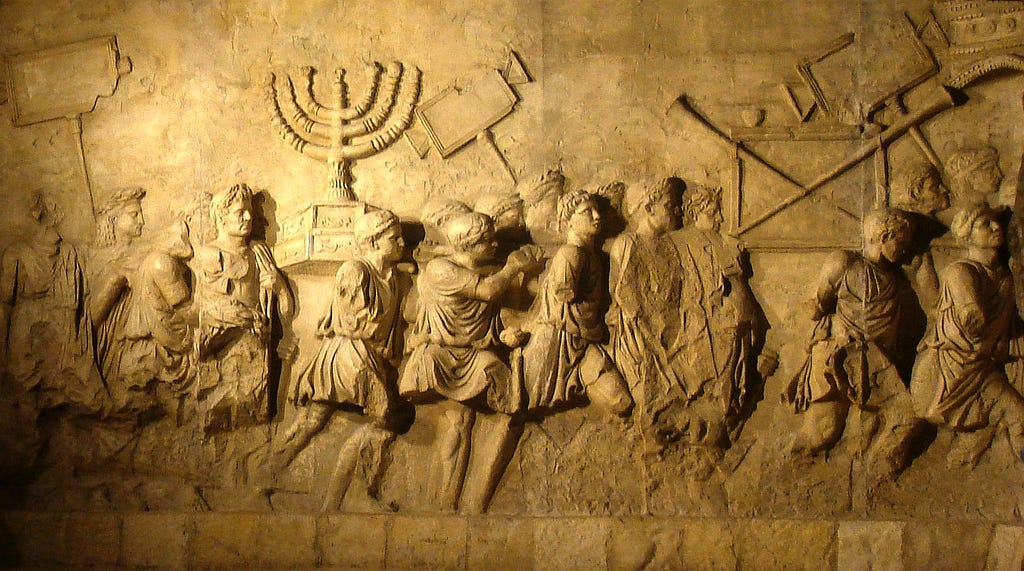After the Temple Fell
Reflections on Episode 419: Barry Strauss on Jews vs. Rome
In this week’s conversation, Barry Strauss joined me to explore two centuries of Jewish resistance to Roman rule. The story begins with Judea’s uneasy incorporation into the Roman system—and ends with the final destruction of Jerusalem and the Temple.
What we find along the way is not a simple tragedy of a small nation crushed by imperial power, but a deeper and more unsettling series of questions: What happens when a religion loses its center? What happens when internal division makes external conquest inevitable? And how is it possible that out of such catastrophic loss came not just survival, but reinvention?
Our discussion ranged widely—from the politics of Herod the Great to the desperation of the Bar-Kokhba Revolt, from Josephus’s complicated legacy to the architectural ambitions of empire. At the heart of it all is a transformation: the shift from Temple to Torah, from sacrifice to scripture.
“Most people don’t want to be conquered by an empire. Especially not a people who believe their land is sacred, their law divinely revealed, and their God the only true one.”
—Barry Strauss
Listen and Discuss
Barry Strauss says that “most people don’t want to be conquered by an empire”—but what made the Jewish response to Rome so different from that of other Roman client states?
What role does geography play in Jewish resilience and revolt? How does Judea’s position between empires—first Egypt and Persia, then Rome and Parthia—shape Jewish political and religious history?
How did Herod attempt to “square the circle” between Jewish identity and Roman loyalty? In what ways did his building projects both reinforce and erode legitimacy?
How do we interpret the zealotry of the Sicarri or the messianic fervor of Bar-Kokhba? Can we compare these movements to other national or religious revolts in history?
The historian Josephus plays an outsized role in shaping how we understand these events—yet he was also a turncoat who defected to the Romans. How should we judge such sources?
What role does factionalism—“senseless hatred” as the Talmud puts it—play in the failure of the Jewish resistance? Could the Temple have survived if the rebels had been united?
Why was the destruction of the Temple in 70 AD such a decisive break with the past? What made this loss more final than earlier disasters?
How might history have looked different if the Temple had survived—if the sacrifices had resumed, and if Christianity and Rabbinic Judaism had remained marginal sects?
What does this conversation tell us about failure? Can a military or political failure produce cultural or spiritual transformation?


